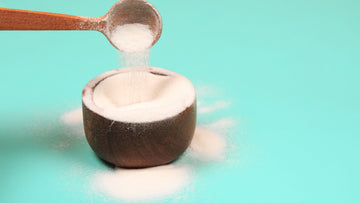
Caffeine is deeply woven into modern lifestyles, with coffee and tea being among the most popular ways to consume it. However, more people are opting to cut down or eliminate caffeine altogether, and there are several reasons driving this shift.
Health Concerns and Sleep Patterns
Many individuals are realizing the impact caffeine has on their overall health and sleep. While caffeine can offer an energy boost, excessive consumption is linked to increased anxiety, disrupted sleep patterns, and even cardiovascular issues. Research has shown that regular caffeine consumption can lead to jitteriness and exacerbate anxiety in some people (MDPI). Furthermore, caffeine can interfere with the quality of sleep, leading to insomnia or less restful sleep (EatingWell). In a world where mental health and well-being are becoming higher priorities, it’s no surprise that people are rethinking their daily caffeine intake.
Caffeine Sensitivity and Withdrawal
People with caffeine sensitivity are more susceptible to its negative effects, such as rapid heart rate, headaches, and gastrointestinal issues. Those with conditions like acid reflux or irritable bowel syndrome (IBS) are also more likely to give up caffeine. Additionally, caffeine is addictive. Quitting it can lead to withdrawal symptoms like fatigue, irritability, and headaches, which some people experience as a major hurdle (EatingWell). However, many find that after pushing through the initial withdrawal period, they feel more balanced and have more stable energy levels.
Improved Digestive Health
Caffeine can be a double-edged sword for digestion. While it can stimulate the digestive tract, it may also cause or exacerbate symptoms like heartburn, acid reflux, and stomach irritation. Some individuals cutting out caffeine have reported a noticeable improvement in their digestive health. Quitting caffeinated beverages like coffee can also reduce the intake of acidity, which contributes to a healthier gut environment.
Reduced Anxiety and Better Mental Clarity
Because caffeine stimulates the central nervous system, it can trigger or worsen anxiety in certain individuals. By eliminating caffeine, some people report feeling calmer, experiencing fewer mood swings, and improving their mental clarity. This reduction in anxiety is often a driving factor for those looking to improve their mental well-being.
Switching to Alternatives
As people move away from caffeine, they are increasingly turning to alternatives such as herbal teas or coffee substitutes. These alternatives provide the same comforting rituals of drinking coffee without the downsides of caffeine. Chicory root and other herbal options have grown in popularity as people seek caffeine-free solutions that still offer a rich, satisfying taste.
The decision to give up caffeine is often influenced by personal health goals and growing awareness of its effects. Whether for better sleep, reduced anxiety, or improved digestion, saying goodbye to caffeine can lead to a range of benefits that enhance both mental and physical well-being. As awareness around these impacts grows, more people are making the conscious choice to opt for a caffeine-free lifestyle.
Health Concerns and Sleep Patterns
Many individuals are realizing the impact caffeine has on their overall health and sleep. While caffeine can offer an energy boost, excessive consumption is linked to increased anxiety, disrupted sleep patterns, and even cardiovascular issues. Research has shown that regular caffeine consumption can lead to jitteriness and exacerbate anxiety in some people (MDPI). Furthermore, caffeine can interfere with the quality of sleep, leading to insomnia or less restful sleep (EatingWell). In a world where mental health and well-being are becoming higher priorities, it’s no surprise that people are rethinking their daily caffeine intake.
Caffeine Sensitivity and Withdrawal
People with caffeine sensitivity are more susceptible to its negative effects, such as rapid heart rate, headaches, and gastrointestinal issues. Those with conditions like acid reflux or irritable bowel syndrome (IBS) are also more likely to give up caffeine. Additionally, caffeine is addictive. Quitting it can lead to withdrawal symptoms like fatigue, irritability, and headaches, which some people experience as a major hurdle (EatingWell). However, many find that after pushing through the initial withdrawal period, they feel more balanced and have more stable energy levels.
Improved Digestive Health
Caffeine can be a double-edged sword for digestion. While it can stimulate the digestive tract, it may also cause or exacerbate symptoms like heartburn, acid reflux, and stomach irritation. Some individuals cutting out caffeine have reported a noticeable improvement in their digestive health. Quitting caffeinated beverages like coffee can also reduce the intake of acidity, which contributes to a healthier gut environment.
Reduced Anxiety and Better Mental Clarity
Because caffeine stimulates the central nervous system, it can trigger or worsen anxiety in certain individuals. By eliminating caffeine, some people report feeling calmer, experiencing fewer mood swings, and improving their mental clarity. This reduction in anxiety is often a driving factor for those looking to improve their mental well-being.
Switching to Alternatives
As people move away from caffeine, they are increasingly turning to alternatives such as herbal teas or coffee substitutes. These alternatives provide the same comforting rituals of drinking coffee without the downsides of caffeine. Chicory root and other herbal options have grown in popularity as people seek caffeine-free solutions that still offer a rich, satisfying taste.
The decision to give up caffeine is often influenced by personal health goals and growing awareness of its effects. Whether for better sleep, reduced anxiety, or improved digestion, saying goodbye to caffeine can lead to a range of benefits that enhance both mental and physical well-being. As awareness around these impacts grows, more people are making the conscious choice to opt for a caffeine-free lifestyle.





